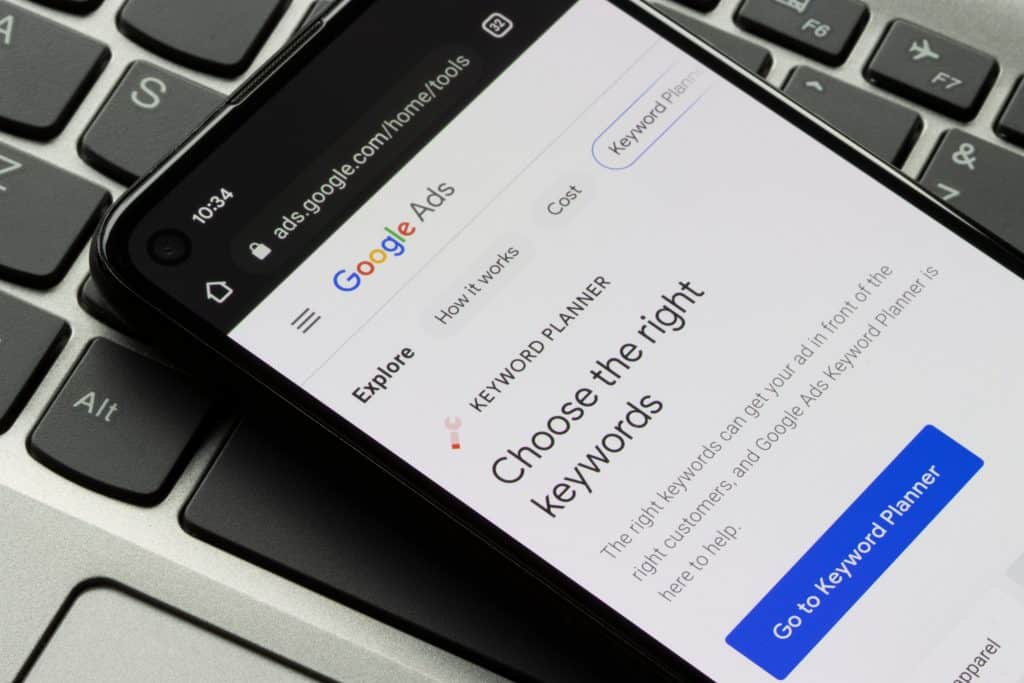The Definitive Guide to Effective Paid Search Strategies

“If you build it, they will come.” – Ray Kinsella, Field of Dreams
Wouldn’t it be nice if that’s how things worked in the real world? But as you’ve likely already discovered, customers don’t mystically appear and start flocking in your direction, no matter how much they may want or even need what you offer. You’ve built an incredible brand. Sure. But your customers will not come unless they can find you.
And paid search is an effective way to do just that – to be found.
It’s a powerful (and nearly mandatory) tool, to be sure. The tricky part is finding paid search strategies that fit your brand like a glove. With so many potential ways to spend your budget, finding the most potent and efficient ways to target your audience and measure ROI can be overwhelming.
The good news is that there are effective paid search methods for everyone, from newly emerging brands to well-established companies.
- Maximizing your efforts simply requires a bit of knowledge and a solid plan. That’s why we’re sharing everything you need to know to control when and where your advertisements are seen so that your target demographic can find you.
- With the right keywords and a savvy approach in place, you’ll be hitting home runs in no time, and your paid search strategy will get you noticed by the customers of your dreams.
What Is Paid Search?
Before you can step up to the plate and begin knocking it out of the park, it’s first important to know what paid search really is and why it’s such a critical marketing piece. For instance, the terms “paid search” and “PPC” (pay per click) are often used interchangeably, but they are not the same thing. “Pay per click” refers to a payment method where brands pay a certain price every time someone clicks on their ad. That’s pretty straightforward, right?

- “Paid search” is an advertising method where brands bid on keywords their audience will likely be actively searching. The paid search takes place on the SERPs (search engine result pages), where websites and ads are ranked by each search engine based on relevance.
- Your ad rank is determined by the bid amount you’ve set, the click-through rate, the quality of your landing page, and other factors.
Need Help With Your Digital Marketing Strategy?
Our team of media buying experts is always available!
5 Steps to Get Started with Paid Search
The process for paid search starts with assessing your needs and objectives and choosing keywords that help you achieve them. Here are five key steps to get you headed in the right direction and set your brand up for success:
1. Identify your audience
This is a time to get granular and be thorough. Imagine your ideal customers – Who are they? What do they do for a living? How do they spend their time? What problem are they trying to solve, or what need/want are they hoping to fulfill? What’s their income? Where do they live? How old are they?
There are more questions to consider, but getting as familiar as you can with exactly who you are targeting and then creating customer profiles to correspond with that is tremendously helpful to defining your keyword plan and is an incredible resource you and your team will refer back to over and over again.
2. Determine your goals
Now that you know who these customers are, now you need to decide precisely what you want them to do after clicking on your advertisement.
This will guide your keyword research and help you choose the best keywords to target. It will also provide cohesiveness to your overall strategy.
- Remember, people seeing your brand isn’t enough. They must be compelled to click, and once they do, you only have seconds to keep and convert them. They’ll bounce if there’s a disconnect between your ad and the messaging you are directing them to. Quickly.

3. Choose your keywords
This is a great time to refer back to those customer profiles you created and take a moment to put yourself in your client’s shoes.
If you were them, what would you be searching for? Consider why they want your product or service and how they would conduct their search, and then try to incorporate those terms into your campaigns. There’s also an abundance of keyword resources available that will show you the most popular keywords in your niche.
4. Create ad copy and landing pages
So many brands often forget, ignore, or undervalue this part of the process, but spending the necessary time on your landing page is unbelievably critical to your paid search success. Put effort and careful consideration into the customer journey.
- Create a roadmap for them that aligns with your goals and with theirs. It’s not enough for your ad to make a customer believe they have found what they are searching for; the place they are directed to once they click has to make it undeniable.
This will help your ads and landing pages support each other and goes a long way in increasing your relevancy on the SERPs.
5. Track & analyze your progress
Paid search is a continual process that requires ample monitoring and testing. It’s not a “set it and forget it” ad method by any stretch of the imagination.
However, tools like Google Analytics (and seemingly countless others) are available to make tracking quick and easy. To maximize your spend, hit your KPIs, and make your ROI soar, keep a close on your performance and make adjustments to improve your ads over time.
Why Should You Use Paid Search?
As mentioned, no matter how extraordinary your business may be, not much matters unless the customers that need you can find you. Paid search is one of the most powerful and effective ways for brands to be seen by their target demographics and thereby gain new customers.
You can even reach your ideal clients when they need what you’re offering, eliminating the need for other, more expensive marketing efforts like cold-calling and cold emails.
Paid search is often a person’s first exposure to your brand and can therefore be critical for increasing sales and conversions. Remember, it’s your first impression!
However, it’s also helpful to remember that customers aren’t always looking to make a purchase right now, and many go through several stages of research when weighing their options. Therefore, repetitive exposure can be an additional benefit of paid search.
The more often they see you, the more likely they are to feel a sense of familiarity and possibly even trust when they are ready to buy, and the more likely they are to engage with your ad.
Ready to Achieve Hypergrowth with Paid Search?
Our team of media buying experts is always available!
Understanding Keywords and Match Types
The keywords you choose for your paid search campaigns are obviously a critical part of your paid search success. Experimentation, testing, and diversifying will be your best friends, especially in the beginning.

In general, using broad, commonly searched terms can cast a wide net, but it should be used wisely.
- While they are typically cheaper and have the potential to drive more clicks (which sounds amazing on paper), if not handled with care, commonly searched terms can also lower your relevance scores and your overall ad ranking.
- Keywords that are quite niche and less widely searched can drive significantly fewer clicks but, when used appropriately, can also potentially convert at a high rate.
- Exact match keywords and phrase match keywords are the most specific of all and bring in the least amount of clicks, but they can still be effective to add to your mix.
Finding the right combination for your business will take some trial and error but can pay off big time once you get dialed in.
Creating Brand Awareness With Paid Search
Timing is everything, isn’t it? As previously stated, sometimes clients are simply researching their options and aren’t quite ready to buy. That’s why building brand recognition is crucial.
- While paid search campaigns are often designed to bring in new customers right now, they can also be used to increase brand awareness over time.
This can be especially helpful if your product is new or you’re trying to stand out against more established brands.
- You can increase brand awareness with paid search by targeting keywords related to your brand but not specifically referring to your product.
This can help you build familiarity and trust with potential customers, who may click on your paid ads when the time is right and are ready to make a purchase.
Customer Loyalty with Paid Search
Brand recognition and new customer acquisition are often what businesses think of first when they consider paid search. However, did you know it’s also a wonderfully effective tool for customer retention, upselling, and more?

Brands can use paid search to target people who have already purchased their products. This allows you to suggest complementary products or services, encourage repeat purchases, or simply keep your brand top of mind and dazzle past customers in ways that increase their brand loyalty.
How to Measure ROI for Paid Search
So, how do you know your paid search plan is actually working?
There are a few basic metrics that will help you monitor your ROI and ensure your campaigns are on the right path:
CTR (Click-Through-Rate)
One of the most common data points to keenly follow are your click-through rates (CTR) as an indicator of your ads’ performance. This will tell you if your ads are relevant and eye-catching enough for your target audience.

CPC (Cost-Per-Click)
CPC is the cost that the brand pays every time a user clicks on one of their ads. By measuring ROI with CPC, brands can determine how much revenue they generate for every dollar they spend on their ads. This information is essential to optimize campaigns and adjust ad spending to maximize ROI. By identifying ads with high CPC and low ROI, you can either modify the ad copy or target more relevant keywords to increase the click-through rate (CTR) and improve the quality of traffic to your site. This, in turn, leads to higher conversion rates and better returns.
There are additional metrics you can opt to track, like conversion rate (CVR), impressions, and lifetime value, but CTR and CPC will be a great start.
It’s important to note that if your brand is new, you may not have enough accurate data for your baseline. In this case, you can use a smaller sample size or select a control group to get a better idea of how effective your paid search campaigns are.
Getting Paid Search Help from the Pros
There are endless nuances to creating the type of wildly effective paid search campaigns that can really move the needle for your business. It can be tricky!
So whether you are an up-and-coming brand putting in loads of effort to get noticed in your market or an established brand attempting to acquire new customers or promote a new product or service, it’s clear that paid search can have a substantial impact on your success.

Between the sheer volume of variables to test and the incredibly high potential these campaigns can yield, sometimes it’s worth considering enlisting the help of professionals to do the dirty work for you. Believe it or not, It can be your most cost-effective option.
Digital Media Buying agencies specializing in paid search are constantly studying to stay current on every trend and devote a tremendous amount of their time and resources to testing every detail of every campaign. They’ve seen it all and can often propel a brand toward its goals way faster.
Finding the right agency for your company can often be like a fast-forward button that allows you to eliminate many unnecessary steps and skip past common pitfalls that slow you down and waste your budget. It’s an efficient way to see the results the quickest.
Key Takeaways
In conclusion, paid search isn’t just a marketing tool – it’s your brand’s ticket to success. Whether you’re a new player or a seasoned pro, a well-crafted paid search campaign can take your brand to new heights by boosting brand awareness, attracting new customers, and increasing consumer loyalty.
So, keep an eye on your data, make changes when needed, and be open to seeking help. With the right approach, paid search can help you rise above the competition and make your brand the talk of the town. Get ready to welcome a whole new crowd of customers to your website and watch your sales soar!
Looking to Hire a Digital Media Buying Agency?
Our team of experts is always available!
FAQs (Frequently Asked Questions)
Paid search is an excellent tool for increasing online visibility as it allows your brand to appear at the top of search engine results pages (SERPs) for specific keywords. By bidding on relevant keywords and crafting ad copy that resonates with your target audience, you can drive more traffic to your website and increase brand awareness.
Measuring the effectiveness of your paid search campaign requires monitoring key metrics, such as click-through rate (CTR), conversion rate, Cost-per-click (CPC), and Return on Investment (ROI). These metrics will provide insight into your campaign’s performance and help you identify areas for improvement.
No, it is not necessary to bid on high-cost keywords to drive traffic to your website. In fact, bidding on high-cost keywords can quickly deplete your budget, leaving you with little to no results. Instead, you should focus on targeting long-tail keywords that are highly relevant to your brand’s products or services. These keywords may have a lower search volume but are more likely to attract highly interested and valuable visitors.
While managing a paid search campaign on your own is possible, seeking professional help can save you time and money in the long run. Professional digital marketers have the expertise and resources to create and manage effective paid search campaigns that deliver maximum results. They can also provide valuable insights into your campaign’s performance and identify areas for improvement.






